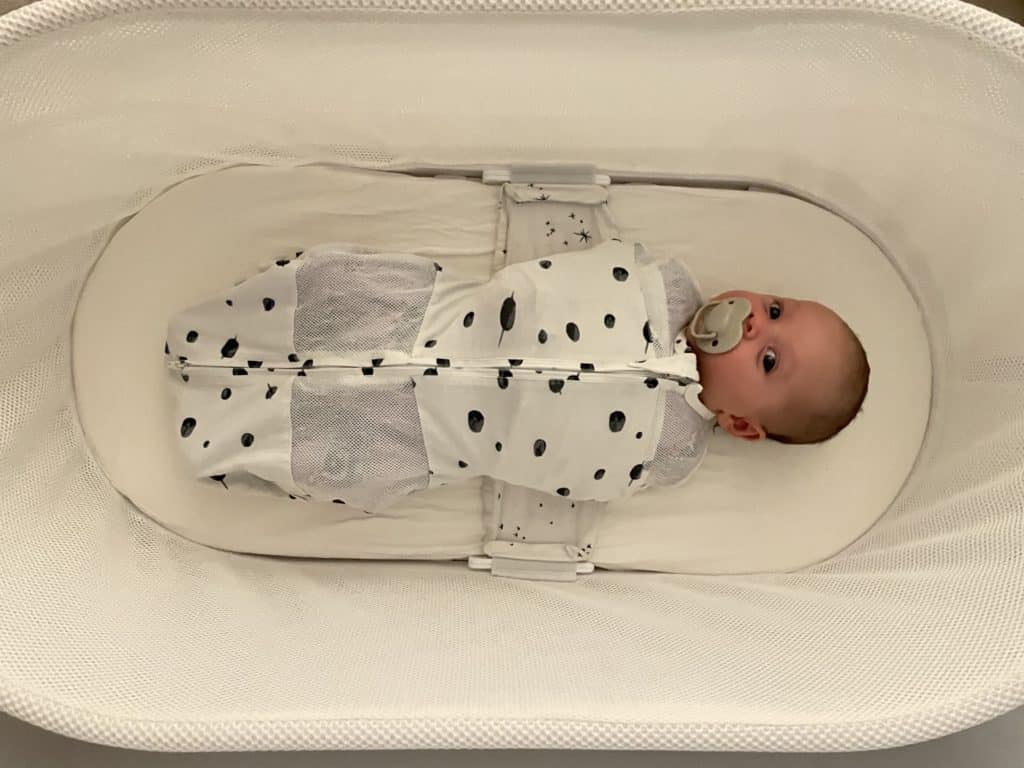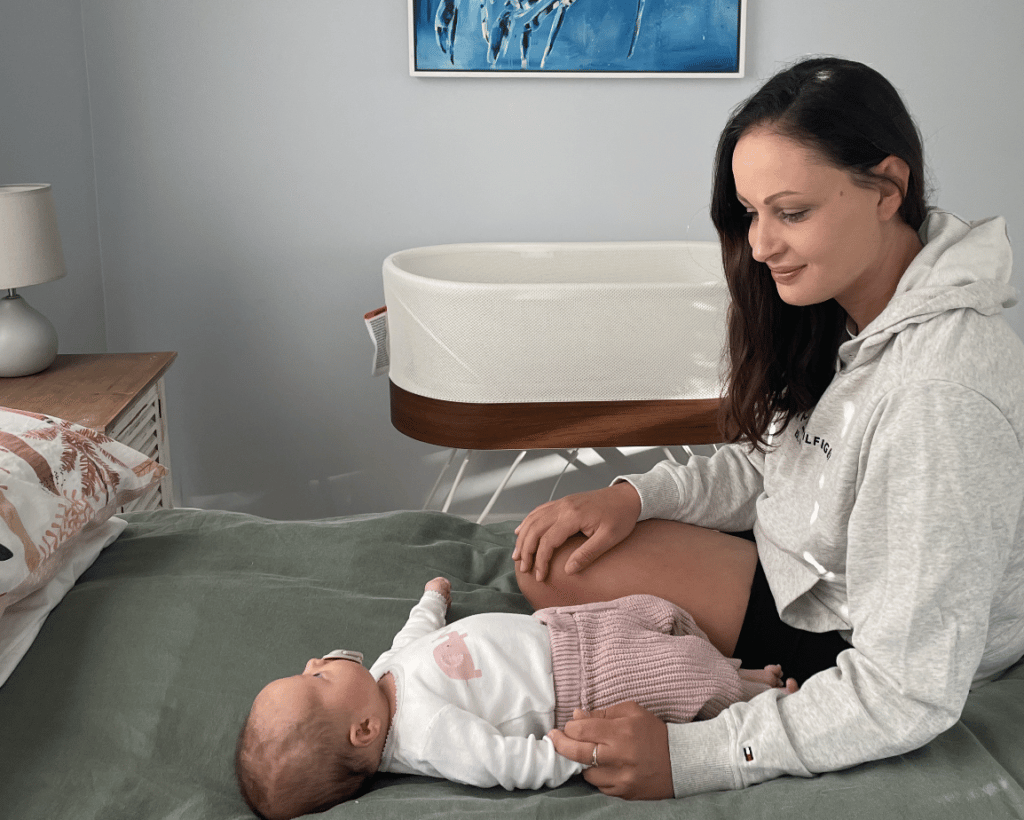There’s a particular type of exhaustion that smacks you in the face as soon as you become a parent.
Sure, you’ve read about the sleepless nights and relentless feeding schedule, but what you’re not prepared for is the immense emotional and physical recovery of birth nor the confronting realisation that you’re now legitimately responsible (forever) for another human life.
There are other factors at play too. Common postpartum hormonal imbalances can lead to greater levels of sleeplessness and insomnia; a catalyst for depression and anxiety. In fact, one study found new mothers who slept poorly were more than three times as likely to experience depression than those with good sleep quality– a crisis likely exacerbated by the pandemic.
We mention our struggles to other parents in hushed words, who smile sympathetically and say there’s nothing they could have said or done to ever prepare us for this new roller coaster chapter in our life. They share their own experiences in a bid to make us feel better, but the underlying message in all of it remains: “Just survive”.
It’s only since the birth of my second baby eight weeks ago, that I’ve begun to wonder whether this is an acceptable status quo? Because surely there is a greater level of support that can be offered to new parents. Surely there are ways to ensure that during this hugely transformative time, we’re not just surviving, but thriving?
Recently, I spoke with Dr Harvey Karp, a world-leading paediatrician and child development expert based in the US who believes the “independent streak” of western countries is its Achilles heel where parenting is concerned.
“Both of our cultures have this strong independent streak, like, ‘I’ll just do it myself, step up for a bit and all that bullshit’”, he says. “But ultimately, it’s misinforming parents. And when you think that you’re supposed to do something perfectly and yet you’re struggling, you feel deficient thinking that everyone else is doing well.”
Karp, who is also the CEO and founder of smart-tech and parenting solutions company Happiest Baby, suggests that modern parents are socially prescribed to keep on top of everything without seeking help. For women, the expectations are even harsher. We juggle a range of competing priorities in an attempt to prove we can “have it all”: The big career, roaring social life, and happy family– which, in truth, is a fast track to burnout.
It was this realisation that served as the impetus for Karp and his wife, Nina Montée to create something which would shift the dial for busy families across the world. In a few short years, the SNOO smart sleeper has amassed a global following; appearing like a “posh baby bed” concedes Karp, but with a purpose that stretches well beyond.
Through cycles of gentle rocking and soothing white noise, the SNOO was designed to give babies “a fourth trimester” outside of their mother’s body, with Karp’s research pointing to the fact that infants up to three months are ill-prepared for the outside world. SNOO mimics the womb, enabling babies and parents to sleep longer through all naps and nights.
“From our point of view, SNOO is not a baby bed at all, it’s a caregiver”, says Karp. “It’s like a babysitter came into your house and said ‘Tarla, go to sleep. I’m going to hold your baby all night long. I’m going to rock your baby all night long. If your baby gets upset, I’ll rock her more. And if I can’t calm the baby down, then I’ll get you to do a feeding’”, he explains.
Reams of glowing online testimonials from grateful parents support Karp’s claims, but as the mum of historically long-feeding, colicky babies, I remained sceptical.
It was only after having my daughter home for a week that I began to see that this might not be a gimmick. Because as soon as my newborn was placed in the SNOO she’d stop fussing, start to doze, and within minutes she was fast asleep. After feeding late at night, she wasn’t squirming like an uncomfortable frog but being soothed back to sleep quickly after a short burping session.

And it’s not just the boost in sleep that’s helped, but the alleviation of anxiety. The SNOO’s design ensures my daughter stays on her back all night meaning that I’m not tossing and turning worried about whether she’s breathing. As someone who struggled with chronic insomnia only two and a half years ago following the birth of my first baby, finally feeling in control and at ease at night has been a genuine game-changer. The relief is seismic.
So what if the SNOO and similar products and services offering parents this kind of critical assurance were made free and accessible in Australia?
“Right now, in the United States, we have thousands of people who get a free SNOO through their employer”, Karp tells me. “It’s their number one benefit”. It’s also available in 140 hospitals across the country. “I would say our goal is that everyone gets a free SNOO. We want it to be paid for by the insurance company or your corporation, or the government,” he says.
While there’s been good progress in Australia over recent years to encourage family friendly workplaces, employers and policy makers would do well to keep momentum going beyond flexible practices and paid parental leave entitlements.
Acknowledging the high rate of sleep deprivation among workers managing new babies and looking at ways to support them getting better sleep during this period would ultimately serve business productivity as much as it would benefit employees.
After a period that has dramatically increased and aggravated the mental health struggles of many–especially new mums– demonstrating true workplace wellbeing priorities should be a key focus for progressive employers– and an investment that will pay dividends.



